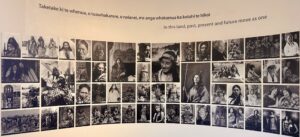New Zealand is globally admired for its breathtaking landscapes and dynamic cultural fabric, a legacy profoundly shaped by its indigenous Maori people. Although constituting a minority, the Maori wield considerable influence within New Zealand’s socio-political framework, underlined by governmental initiatives designed to elevate their needs and rights. This discourse explores the historical foundations, the Treaty of Waitangi, and ongoing endeavours to uphold Maori rights and foster reconciliation.
The signing of the Treaty of Waitangi in 1840 was a watershed moment in New Zealand’s history, symbolizing an alliance between the British Crown and Maori chiefs. Drafted in both Maori and English, the treaty was intended to establish peace and ease British colonization while preserving Maori land and cultural rights. Nonetheless, discrepancies in translation and interpretation sparked misunderstandings and trust breaches, giving rise to long-standing grievances that linger today.
The cornerstone of the Treaty of Waitangi lies in its recognition of Maori as tangata whenua—the people of the land. This designation grants them specific rights and protections, reinforcing the significance of Maori culture, language, and traditions. Over the years, successive New Zealand governments have attempted to honour these promises, though with varying levels of success.
Maori have faced centuries of marginalization, land dispossession, and cultural oppression, leading to significant socio-economic disparities. Acknowledging these historical injustices, successive governments have initiated various strategies to redress Maori grievances and encourage reconciliation. Integral to these efforts are Treaty settlements that aim to correct past wrongs through financial restitution, land returns, and cultural rejuvenation programs.
In recent times, the New Zealand government has increasingly focused on Maori welfare in its policy development and execution. This dedication is embodied in laws such as the Treaty of Waitangi Act 1975, which provides frameworks for resolving treaty disputes and promoting Crown-Maori collaboration. Furthermore, government agencies are obligated to incorporate Treaty of Waitangi principles in their decision-making processes, ensuring that Maori viewpoints are considered.
The principle of partnership lies at the heart of governmental strategy, promoting cooperation between Maori and the Crown in governance and policymaking. This cooperative approach is epitomized by organizations like the Treaty Settlements Office and Maori Wardens, which facilitate dialogue, negotiations, and conflict resolution between Maori communities and government institutions.
However significant progress has been made, hurdles persist in realizing true partnership and equity for Maori in New Zealand. Socio-economic inequalities continue to be pervasive, and matters such as land rights, resource governance, and cultural preservation remain points of contention. Nonetheless, there are burgeoning opportunities for positive transformation as Maori knowledge, values, and perspectives gain broader acknowledgment in shaping national policies and practices.
The quest for reconciliation between the New Zealand government and the Maori is an evolving journey marked by both advancements and obstacles. Adhering to the Treaty of Waitangi’s principles—partnership, participation, and protection—is vital for cultivating a society that honours Maori culture, identity, and aspirations. Through a collective effort imbued with mutual respect and comprehension, New Zealand can continue to progress towards a future that both respects its rich indigenous heritage and champions diversity and inclusivity.

